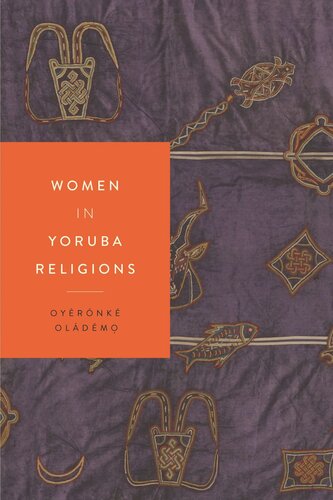

Most ebook files are in PDF format, so you can easily read them using various software such as Foxit Reader or directly on the Google Chrome browser.
Some ebook files are released by publishers in other formats such as .awz, .mobi, .epub, .fb2, etc. You may need to install specific software to read these formats on mobile/PC, such as Calibre.
Please read the tutorial at this link: https://ebookbell.com/faq
We offer FREE conversion to the popular formats you request; however, this may take some time. Therefore, right after payment, please email us, and we will try to provide the service as quickly as possible.
For some exceptional file formats or broken links (if any), please refrain from opening any disputes. Instead, email us first, and we will try to assist within a maximum of 6 hours.
EbookBell Team

4.1
10 reviewsUncovers the influence of Yoruba culture on women’s religious lives and leadership in religions practiced by Yoruba people
Women in Yoruba Religions examines the profound influence of Yoruba culture in Yoruba religion, Christianity, Islam, and Afro-Diasporic religions such as Santeria and Candomblé, placing gender relations in historical and social contexts. While the coming of Christianity and Islam to Yorubaland has posed significant challenges to Yoruba gender relations by propagating patriarchal gender roles, the resources within Yoruba culture have enabled women to contest the full acceptance of those new norms.
Oyeronke Olademo asserts that Yoruba women attain and wield agency in family and society through their economic and religious roles, and Yoruba operate within a system of gender balance, so that neither of the sexes can be subsumed in the other. Olademo utilizes historical and phenomenological methods, incorporating impressive data from interviews and participant-observation, showing how religion is at the core of Yoruba lived experiences and is intricately bound up in all sectors of daily life in Yorubaland and abroad in the diaspora.